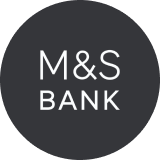Small Loans – How To Get One
It’s beneficial to be well-researched when considering small loans – high interest rates and extra fees can be expensive in the long-term.
When used responsibly, however, small loans can offer a valuable lifeline to those facing temporary setbacks.
Whether you need to cover a bill that’s come out of the blue or make a necessary purchase, a small loan could provide you with the financial support to get through a sticky situation.
Having said that, it can be difficult to know where to start when searching for a lender, or to figure out what type of loan you require.
With so many loan options at your disposal, it’s wise to make sure you have a good grasp on the basics of how small loans work before taking one out.
In this article, we’ll break down the fundamentals of these loans, and explore the pros and cons.
What is a small loan?
A small loan is a type of flexible personal loan which gives borrowers access to a relatively small amount of money.
The clue is in the name, as loans of this kind typically range from a few hundred pounds to a few thousand.
Small loans can be accessed via banks or credit unions and are intended to provide quick and easy access to funds for people who might not qualify for larger loans, or who only need to borrow a small sum of money for a short time.
They can be used for pretty much anything as they’re a category of personal loan. So, they can be a great solution for covering unexpected expenses at short notice.
However, it’s important to note that the terms and conditions of small loans vary widely between lenders.
Factors like your credit history and score, and the purpose of the loan, all contribute to a lender’s final decision.
It’s important to fully understand how small loans work and the repayment terms before you take one out.
How do small loans work?
Small loans operate in a similar way to most other personal loans.
First, you agree to borrow a prearranged sum of money from a lender.
Then you pay it back, alongside interest, over a set period which is agreed between you and the company you’re borrowing from.
The process of applying for a small loan differs depending on which lender you choose to work with. But typically begins with you filling out an online application form.
You’ll typically provide some details regarding your income, your employment, and information about your credit history before your application is assessed.
Whilst small loans are usually unsecured (meaning you don’t need to put any collateral down in case you can’t repay it), some lenders might require you to put up collateral to secure your loan against or ask a co-signer to secure it.
Once the lender approves your application and the cash is deposited in your bank account, you’ll be responsible for making periodical repayments to the lender almost immediately after you receive your funds.
Payments you’ll have to make will usually be set at a fixed amount each month, and one single payment will include both the loan sum and the interest accruing on it.
How long will I have to pay a small loan back?
The time you’ll have to make repayments on a small loan is hugely variable.
Depending on the lender you choose, and the terms of the loan, small loans tend to have durations anywhere between a couple of months to a few years.
If you need a very small amount of money, you are usually able to take out a short-term small loan which allows you to pay back the funds quickly.
Lenders will try to work with you on a timeline for repayments and will want your payment plan to be manageable for you.
From your end, it’s important to ensure you understand any terms and conditions associated with the loan before accepting it.
This will leave you with peace of mind that the repayment period works alongside your pre-existing budget.
Beware, some lenders charge extra fees for early repayment. It’s important to ensure that you’ll consistently have the funds to pay a set amount each month as paying back a loan in its entirety can often cost you dearly.
What are some common expenses people use a small loan to cover?
Small loans can be highly flexible. Here are some examples of what they can be used for:
- Costly emergencies – Unexpected emergencies such as medical bills, car repairs or home repairs can wreak havoc on your savings account. Small loans can be taken out to cover these costs, potentially preventing them from becoming greater problems in the long run.
- Debt consolidation – Consolidating a few different debts into one small loan can often help you take control of your finances and manage your affairs more easily. A small loan could potentially carry a lower interest rate than other credit products you may have run up debts on, like credit cards, for example. By reducing your monthly payments through taking out one small loan (as long as the interest and any other fees are lower), it may be easier to get a handle on your monthly expenses and cut costs overall.
- Funding education and training – Small loans can be used to finance training programs or courses. Costly professional qualifications can potentially lead to lucrative wage growth in the long run, so taking out a small loan to cover the upfront cost can deemed a worthwhile course of action for some – you just need to keep in mind the interest that accrues on it and any other fees.
- Home improvements – Taking out a small loan is just one way to fund home improvements or repairs. A new roof or a kitchen renovation are costly projects to undertake, so using a small loan to bridge the gap in funding can be an appealing prospect as long as it’s affordable in the long run.
- Wedding expenses – Weddings often end up costing couples and their families a huge sum of money, and due to the nature of the event, the bills are usually all due to be paid in a short space of time. You may be able to take out a small loan to cover any costs you face upfront, such as hiring a venue, employing a caterer, and paying a professional photographer.
Small loans can be a lifeline when you need to cover surprise costs or finance a milestone life event. However, it’s important to use this money tool responsibly, and take the time to consider the terms and conditions of the loan before applying with a lender.
What are some drawbacks of taking out a small loan?
Small loans can act as a useful tool to help you achieve your financial goals or tend to emergency expenses.
But as is the case with all credit products, there are also some potential drawbacks to consider before taking one out.
High interest
Because they’re usually unsecured, small loans often come with higher interest rates compared to other types of loans which can be secured by collateral, such as car loans, or secured personal loans. This can drive up the cost of borrowing on a small loan and increase the overall sum you’ll be expected to pay back.
Added fees and penalties
Some lenders might add fees for processing your loan application. Other factors can contribute to higher costs as well, such as penalties for late payments or costs for repaying your loan early. If your financial circumstances change and it disrupts your repayments, small loans can become more expensive than you originally anticipated.
Impact on credit score
Agreeing to take out a small loan, or applying for one and getting rejected, can damage your credit score. This is especially true if you fail to keep up with your loan payments, or consistently pay late. If your credit record takes a hit, it can be harder for you to qualify for loans or other credit products in the future.
Potential for falling into debt
If your loan payments are not manageable and you fall behind on repayments, borrowing a small loan can lead to a cycle of debt. As well as contributing to financial stress, this could result in long-term consequences, including difficulties getting a mortgage, trouble obtaining a credit card to boost your score again, or difficulty in obtaining loans to consolidate debt.
Limited funds
Naturally, small loans come with smaller borrowing limits compared to other categories of loans.
The amount you’re able to get may not be high enough to cover larger expenses. For example, if you borrow a small loan to complete a home project and the cost spirals throughout your completion of that project, you may then need to apply for further loans.
However, doing so might damage your credit history as it’s generally not a good idea to apply for too many credit products within a short period.
If you think the costs of whatever you’re using the small loan to fund may run over budget, it might be a good idea to consider taking out a higher, secured loan.
Will a lender want to know what I’m using my small loan for?
In most cases, lenders will not require you to disclose what you’re using your small loan for.
Small loans are a type of personal loan which are highly flexible and can generally be used to pay for anything you desire.
However, some lenders who are offering small loans on the marketplace might make a general query of what the funds will be used for once you’ve received them.
This is because lenders generally want to ensure that those who borrow small loans are using the funds responsibly, and for a legitimate reason.
Whilst this is true, they probably won’t require specific details about your situation, or documentation to show what you’re using the funds for.
When you’re having initial conversations about borrowing, some lenders might casually ask what intention for the money is, like debt consolidation or house renovation, without demanding details in an official capacity.
As a rule of thumb, irrespective of whether the lender officially requires details regarding the purpose of the loan, it’s important to borrow only what you feel you will need.
This helps you to ensure you can manage repayments, avoiding financial penalties and any damage to your credit record.



